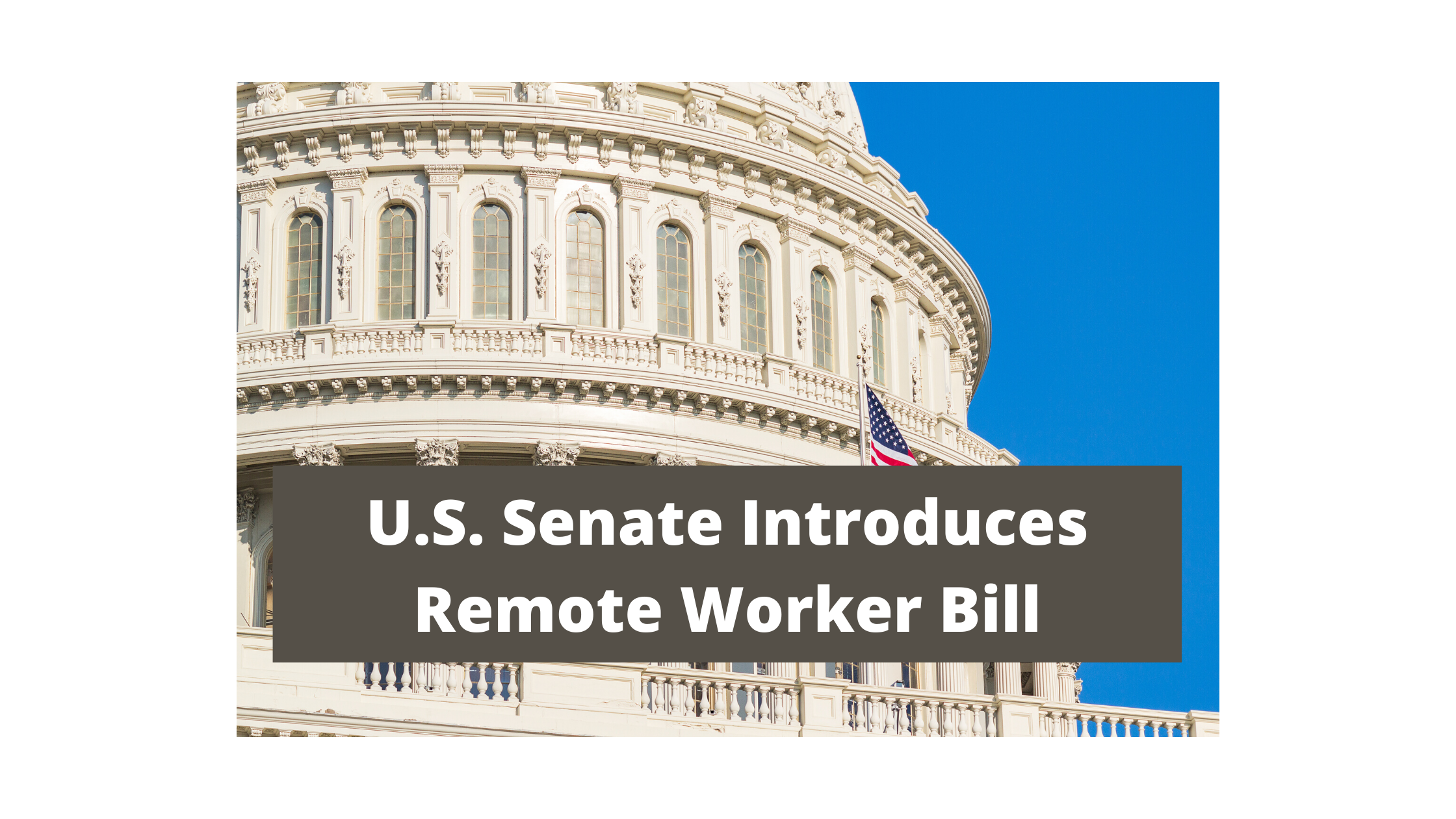Remote Worker Bill Introduced in U.S. Senate (S.B. 3995)

The US Senate introduced S.B 3995 seeking to protect employers from an unintended taxation consequence related to employees that are working from home outside of the state or business tax jurisdiction.
Our friends at Barsamian & Moody, break down what employers need to know about this bill as it works through the legislature.
The Remote and Mobile Worker Relief Act of 2020, (Summary in progress) introduced on June 30th, would limit the authority of states and other taxing authorities from double dipping their taxation of employees who are working remotely in other states.
Essentially the limitation would protect those working remotely by ensuring that their wages are only taxed by their local taxing authority, rather that the local one AND a taxing authority from where the business itself is based or their work normally takes place.
The key provisions of the bill do the following
- Limit state withholdings and taxation of employee income to only the taxing jurisdiction of the employee’s residence
Or
- The location where the employee was performing duties for more than 30 days during the calendar year in which the wages were earned.
Additionally, there are COVID-19-specific provisions which create a special “covered period” which begins on the date the employee began working remotely, and ends when the employer allows the employee and 90% of its permanent workforce to return to the work location. During the covered period, any wages earned will be deemed to have been earned at the primary work location of the employee or, at the election of the employer, at the location in which the duties were remotely performed.
The future of this bill is unknown as there is historical opposition in the House of Representatives to negatively impact state income tax revenue streams. However, some states have already provided relief from income tax and withholding.
What This Means for Employers:
Absent specific guidance regarding alternatives, employers must follow the state laws that apply. This generally means, nonresident income tax withholding is required on all wages earned in the nonresident state. Businesses with temporary teleworkers or employees working in more than one state need to continue to be vigilant in meeting their nonresident income tax withholding and information reporting requirements.
OnePoint HCM Payroll and Tax Administration solution uses geospatial technology to determine what taxes should be applied for an employee. It looks at where the employee works and employe lives to determine the appropriate taxes. It is intuitive enough to calculate down to the local taxes and take into account any reciprocity agreement between states in regards to taxes. This means you don't have to worry about applying the tax codes because the system automatically applies the appropriate taxes for each employee.
This article was contributed by Faith Driscoll, Esq. with the law firm of Barsamian & Moody. The goal of this article is to provide employers with current labor and employment law information. The contents should neither be interpreted as, nor construed as legal advice or opinion. The reader should consult with a labor law attorney. Barsamian & Moody can be contacted by phone (559) 248-2360 or email laborlaw@theemployerslawfirm.com to determining the taxing requirements for your employees and the unique situations of their employment.
Subscribe to updates
Get the latest posts delivered to your inbox.